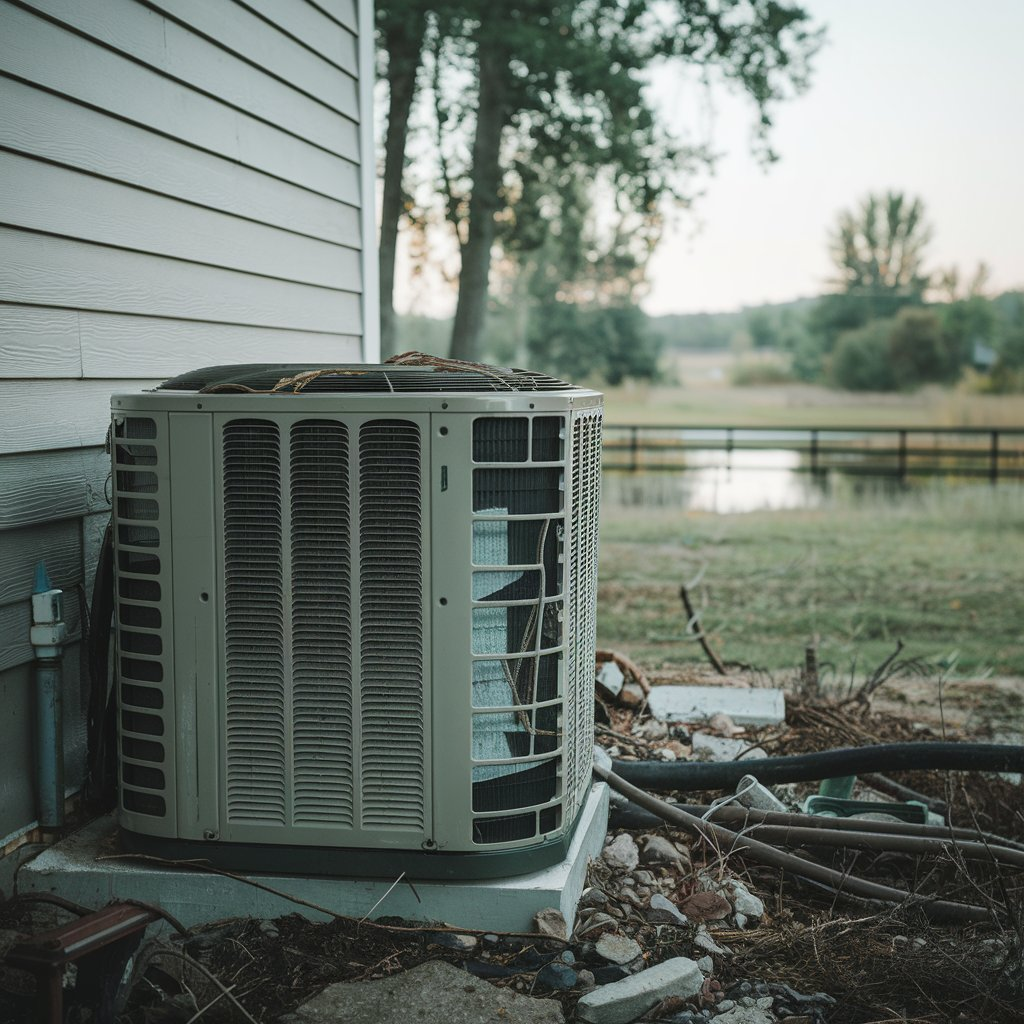Introduction
Understanding the role of key components like the air conditioner condenser is crucial when dealing with home or business insurance claims. This article will explore the importance of air conditioner condensers, whether they are located in the exterior or interior of a property, and how they factor into insurance claims. We will provide detailed information, explain related processes, and offer insights into how these elements are evaluated by insurance companies in the USA.
Introduction to Air Conditioner Condensers
An air conditioner condenser is essential to HVAC (Heating, Ventilation, and Air Conditioning) systems. It works by releasing heat absorbed by the refrigerant inside the system. The condenser is vital in cooling homes and businesses, making it a crucial component for comfort, especially during hot months.
Condenser units are generally placed outside the building (exterior) or within the building structure (interior). Understanding where your condenser is located and how that impacts your insurance policy is key when filing a claim for damages.
The Difference Between Exterior and Interior Condensers
Air conditioner condensers are typically found in two primary locations: outside (exterior units) and within the interior of a building. Both placements have specific implications for insurance claims, particularly when damage occurs. Let’s break down each type:
Exterior Condensers
An exterior air conditioner condenser is usually installed outside the property, often at ground level or on commercial buildings’ roofs. These condensers are exposed to various environmental elements such as rain, wind, heat, and debris. Because of this exposure, exterior condensers are more susceptible to physical damage from natural disasters like hurricanes, storms, or even vandalism.
Interior Condensers
On the other hand, interior condensers are typically installed within the structure, usually in basements, attics, or other enclosed spaces. Interior condensers are less exposed to environmental elements but can still suffer damage from causes like electrical surges, mechanical failures, or internal flooding from plumbing issues.
Insurance Coverage for Air Conditioner Condenser Damage
Filing an insurance claim for an air conditioner condenser, whether exterior or interior, requires understanding how different types of damage are covered under your policy. Here’s how various scenarios may be evaluated:
Natural Disasters and Weather-Related Claims
Natural disasters like storms, hurricanes, hail, and wind damage are common reasons for filing an insurance claim for exterior condensers. These events typically fall under the “Act of God” clause, which means most standard home or business insurance policies cover them. If a storm knocks a tree onto your exterior air conditioner condenser or hail damages the unit, insurance will likely cover these events.
Interior condenser claims related to weather might involve flooding from heavy rainstorms, which could cause electrical shorts or water damage. However, some policies may exclude coverage for internal flooding, particularly if it’s due to negligence or if flood insurance isn’t part of the policy.
Vandalism and Theft
Exterior air conditioner condensers are vulnerable to theft and vandalism, especially in areas prone to crime. Thieves may target condensers for their valuable copper components, and vandals might damage units for malicious reasons. Most homeowner or commercial insurance policies generally cover these types of claims. However, it’s essential to document the damage thoroughly to ensure a smooth claims process.
Wear and Tear vs Sudden Damage
Insurance policies typically don’t cover normal wear and tear. This applies to both exterior and interior air conditioner condensers. Your claim may be denied if your unit stops working due to age, corrosion, or general deterioration. On the other hand, sudden damage, such as a power surge that causes the condenser to fail, is often covered if you have an additional rider, which includes electrical damage, on your policy.
Maintenance and Neglect Issues
Proper maintenance is essential to ensure that insurance covers condenser damage. If your insurance company determines that the damage to your condenser was due to poor maintenance or neglect, they may deny your claim. For instance, your claim may not be honoured if an interior condenser suffers damage due to a clogged drain line or dirty filters. Keeping routine maintenance records can support your claim and show that you’ve taken the necessary steps to prevent damage.
Common Challenges When Filing Insurance Claims for Air Conditioner Condensers
While insurance can provide coverage for damaged air conditioner condensers, there are common challenges homeowners and business owners may face during the claims process. These challenges include:
Policy Exclusions
One of the most common issues is policy exclusions. Many policies exclude specific types of damage, such as those caused by poor maintenance or gradual wear and tear. It’s essential to thoroughly read your policy to avoid surprises when filing a claim.
Delayed Claims Processing
Another challenge is the time it takes for claims to be processed. Insurance companies often require multiple assessments and may delay the process, especially during periods of high claim activity (such as after a natural disaster). Being proactive and following up regularly can help expedite your claim.
Disputed Damage Claims
Insurance companies sometimes may dispute whether a covered event caused the damage. For instance, they may argue that an air conditioner condenser’s failure was due to wear and tear rather than the result of a sudden event. Having detailed documentation and professional assessments is crucial in these situations.
Conclusion
Understanding how air conditioner condensers, whether exterior or interior, impact insurance claims can save you time and frustration in the event of damage. It’s essential to know what your insurance policy covers, document damage thoroughly, and follow the proper steps to ensure a successful claim.
Maintaining your air conditioner condenser and keeping records of any issues can minimize the risk of claim denial and ensure you’re fully covered when disaster strikes. Whether your condenser is located outside or within the property, knowing your policy details can help protect your investment and ensure you get the coverage you need.

